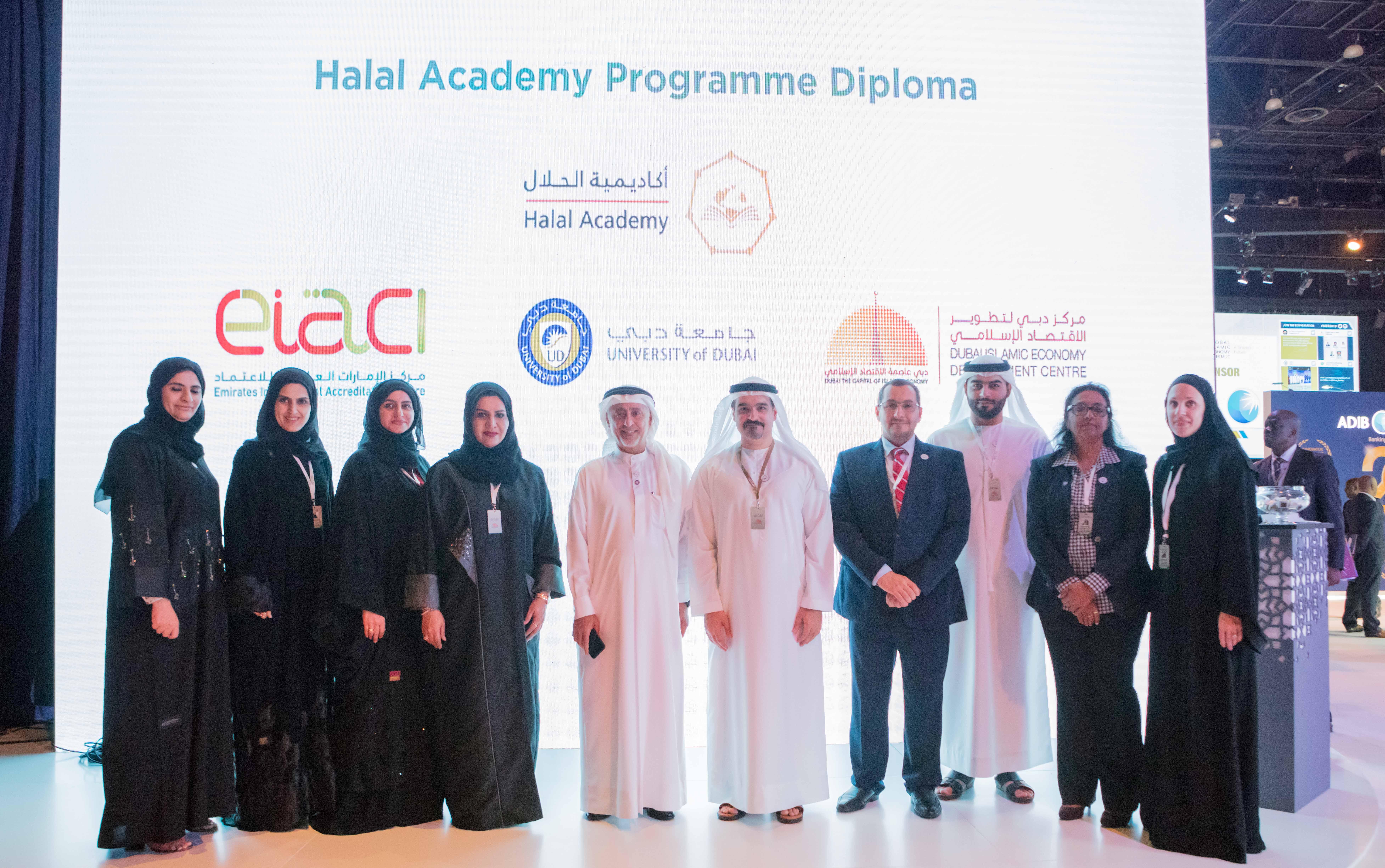
UAE’s EIAC, IHAF, Uni of Dubai open new halal auditing training programme
Dubai-based organisations the Emirates International Accreditation Centre (EIAC) and the International Halal Accreditation Forum (IHAF) have started a new halal auditing training programme.
EIAC Executive Director Amina Ahmed Mohammed told Salaam Gateway the Halal Academy programme will be split, with one in the form of short workshops and the other more academic in nature.
“During workshops with various bodies, we concluded that individuals should be qualified to audit halal products, and so we collectively came up with the idea to set up an academy or training centre for this,” said Mohammed.
“Training programmes led by the EIAC will last a few days and taught by experts, and is useful for those who want to become a halal auditor. Then there’s the academic offering – a full diploma – that’s in collaboration with the University of Dubai,” she added.
START DATE
While short training courses have already started, the academic programme is expected to begin during the first quarter of 2019 on campus at University of Dubai, confirmed university president Dr. Eesa Mohammed Bastaki.
“We need to have people who are experts in the whole value chain of the halal process – from manufacturing until fork. We are going to train these people in every part of that value chain for them to be experts in auditing,” he said.
Initial courses are expected to run for approximately six to eight weeks, subject to review, said Dr Bastaki.
“It all depends on how we progress. This is the beginning of finding interest [from people who want to pursue] Islamic Economy disciplines,” he said.
“After we give this a year or two, we may start a PhD in Islamic Economy Management, but you cannot do it if you have no students. So this is why you have to start like this – it’s a marketing tool whilst serving the Muslim community.
Dr Bastaki added there is already talk about eventually introducing courses online.
“I want to do it online; we are working on a studio to do remote learning. [But] the curricula for an online programme needs time.”
GLOBAL ASPIRATIONS
There are also plans to take the Academy global.
“In the future we're looking at expanding this Academy beyond the UAE. For instance, we have already had interest from Singapore. I see a lot of territories taking an interest in this type of learning,” said EIAC’s Mohammed.
“[In Dubai] courses will be taught mainly in English and may be available in Arabic depending on demand, with plans to expand to other languages in the years to come.
“Depending on the territory, we'll present programmes in a suitable language, like Spanish for example,” said the executive director.
The qualification obtained from the Halal Academy should be accepted in any territory, said Mohamed.
“We are one of the halal accreditation bodies around the world. IHAF needs to build these bodies to be trained and recognised,” she said.
IHAF ROLE
The independent IHAF works to harmonise halal accreditation and conformity assessment practices and refers to halal standards set by the Standards and Metrology Institute for the Islamic Countries (SMIIC). Its membership comprises accreditation bodies from Islamic and non-Islamic countries.
“We have a mutual understanding between the Halal Academy and IHAF so we can work together and utilise the resources available. Hopefully we can do something good and build capacity,” IHAF advisor Farah Al Zarooni told Salaam Gateway.
Part of IHAF’s work involves exchanging information with global accreditation organisations that are less familiar with halal processes.
Al Zarooni confirmed that IHAF signed an agreement with the International Laboratory Accreditation Cooperation (ILAC) and the International Accreditation Forum (IAF) at the joint ILAC/IAF General Assembly 2018 taking place in Singapore from Oct 22 to 31.
“They (ILAC, IAF) do the same as us for every single product except for halal,” said Al Zarooni.
“IHAF is working very efficiently with the stakeholders and with their members to create a framework of different practices in accreditations and unify requirements.
“Through the Academy, we are offering different types of programmes - among those is the personal certification which means that we can certify individuals, and [give them] international recognition. A certified halal auditor shows that they are competent," said Al Zarooni.
(Reporting by Rachel McArthur; Editing by Emmy Abdul Alim emmy.alim@refinitiv.com)
Our Standards: The Thomson Reuters Trust Principles
© SalaamGateway.com 2018 All Rights Reserved

Rachel McArthur